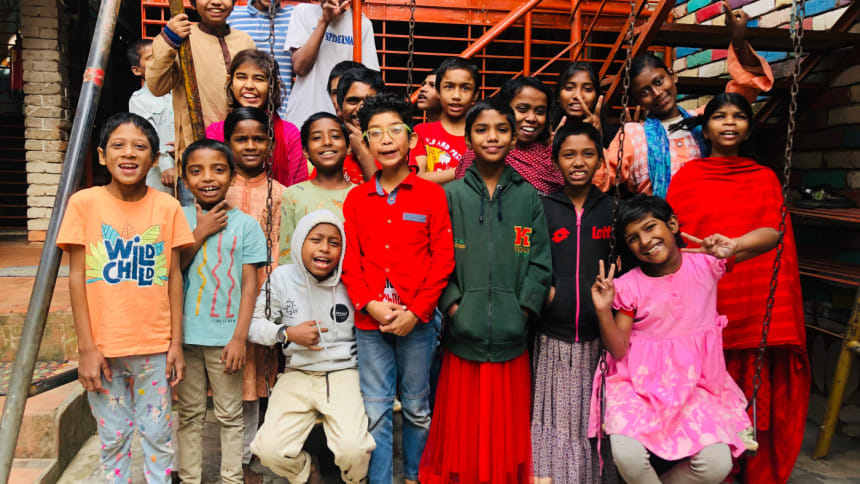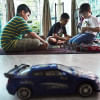Empower Bangladeshi kids: How your zakat can make a difference

One of Islam's five pillars, Zakat is not just a religious obligation; it can be a means to combat poverty, uplift communities, and restore dignity to those in need. Among society's most vulnerable are underprivileged children, many of whom lack access to education, nutrition, healthcare, and safe shelter. Properly utilising Zakat funds can bridge the gap between despair and hope, offering these children a chance at a better future.

"I want to be a doctor, but..."
A ten-year-old girl, Nusrat, sits on the steps of a newly constructed building, braiding her younger sister's hair. "I want to be a doctor," she says with hesitant excitement. "I want to help children like my brother, who died because we didn't have money for medicine."
But dreams often have a price, one her family cannot afford. Nusrat spends her days collecting rags instead of attending school.
The power of Zakat is in its ability to rewrite stories like Nusrat's. Imagine if she was granted access to education through a Zakat-funded scholarship. Imagine if she could become the doctor she dreams of being.
Zakat can be a bridge between the fortunate and the forgotten but its true essence is realised only when it is distributed effectively and transparently.
As A K M Azizur Rahman, Consultant at Local Education and Economic Development Organization (LEEDO), states, "Zakat is more than a financial obligation. It is a duty to the most vulnerable in society. If properly distributed, it has the power to change the lives of underprivileged children, giving them the tools to grow, learn, and contribute to the nation."

The harsh reality for underprivileged children
Despite progress in development, poverty remains a significant challenge for many families in Bangladesh. According to UNICEF (2022), while 98 per cent of children enrol in primary school, only 62 per cent continue to secondary education due to financial constraints.
The situation is even more alarming when it comes to malnutrition and healthcare, as 28 per cent of children under five suffer from chronic malnutrition. Moreover, according to the Bangladesh Demographic and Health Survey conducted in 2022, 10 per cent of the children are severely malnourished.
Rahman emphasises, "Every time we fail to provide education, food, or medical care to a child, we are failing as a society. Zakat offers us a direct way to reverse this injustice and ensure no child is left behind."
Zakat, when distributed successfully, can play a transformative role in the lives of underprivileged children by addressing critical areas such as education, healthcare, nutrition, and shelter.
Millions of children are deprived of education because their families cannot afford school fees, books, or uniforms, forcing them into child labour instead. With Zakat, these children can be provided with free educational materials, scholarships, and access to community-based learning centres, ensuring they receive the education they deserve.
"We must see Zakat not as short-term charity, but as a long-term investment in our society. Every taka spent on a child's education, health, or well-being creates a ripple effect that benefits the entire nation," remarks Rahman.

Ensuring your Zakat makes an impact
One of the most effective ways to ensure your Zakat reaches the right hands is by giving through transparent, well-established organisations that specialise in working with underprivileged children.
However, before donating, it is important to ask yourself: Does the organisation have a clear track record of distributing Zakat? Or are they actively working in areas where child poverty and deprivation are severe?
While short-term aid, such as distributing food and clothes, is important, Zakat can create lasting change when it is invested in long-term solutions such as educational sponsorships to ensure a child stays in school, and shelter and rehabilitation programmes for orphans and street children.
So, this year, let your Zakat be more than just a donation – let it be a child's second chance at life.
Photo: Local Education and Economic Development Organization (LEEDO)

 For all latest news, follow The Daily Star's Google News channel.
For all latest news, follow The Daily Star's Google News channel. 








Comments